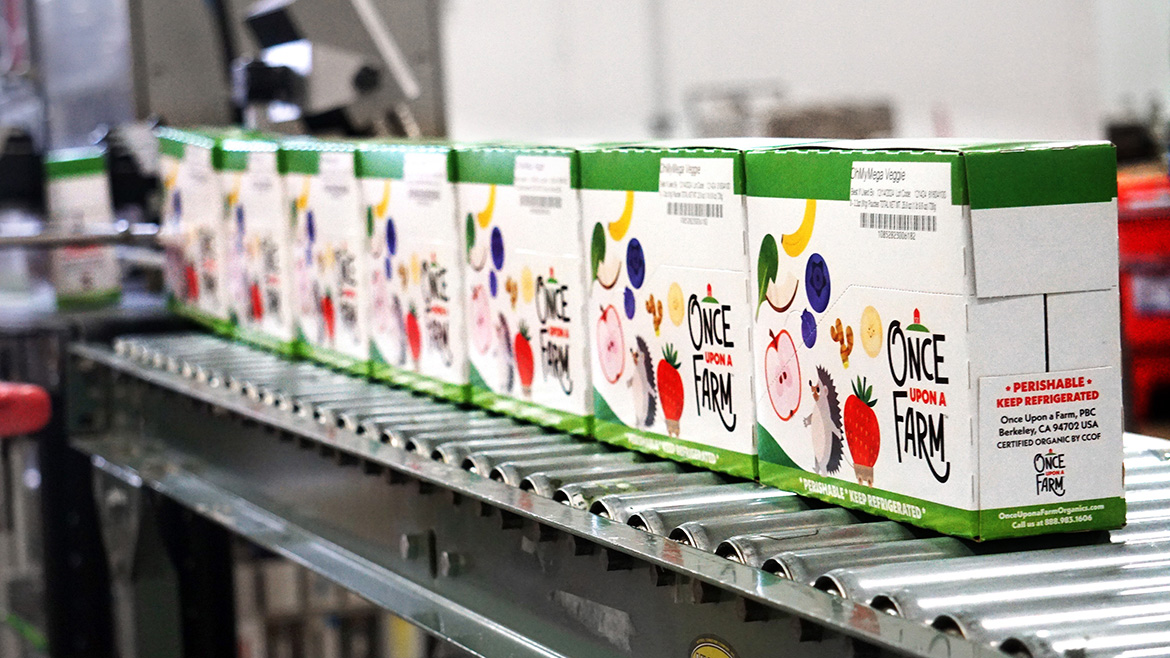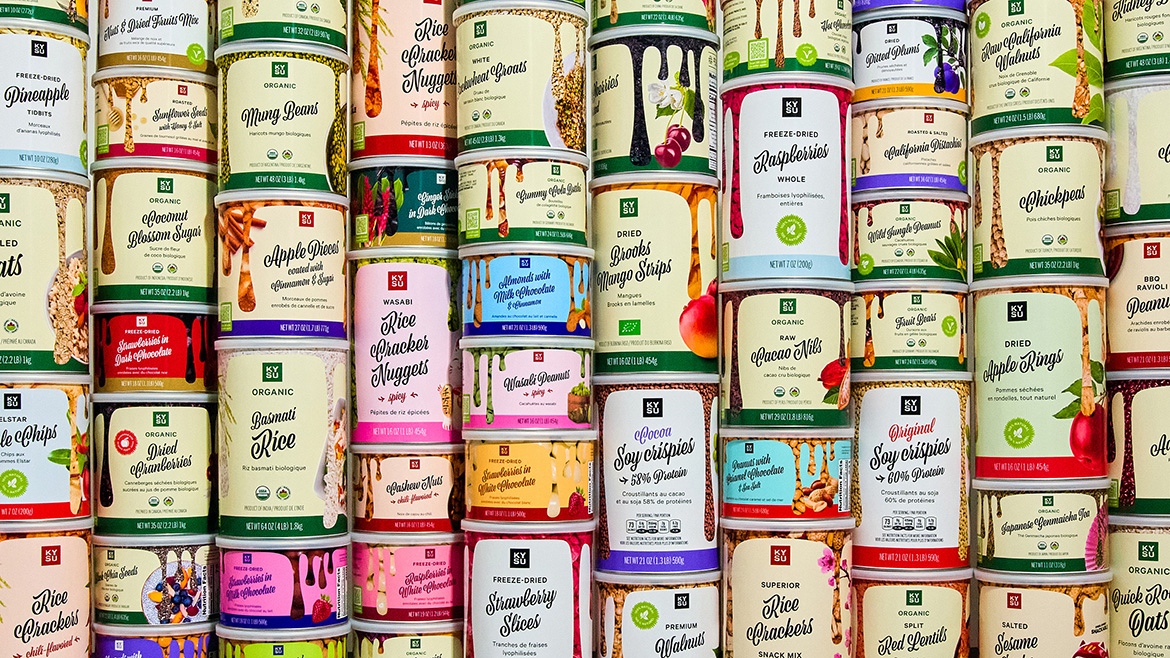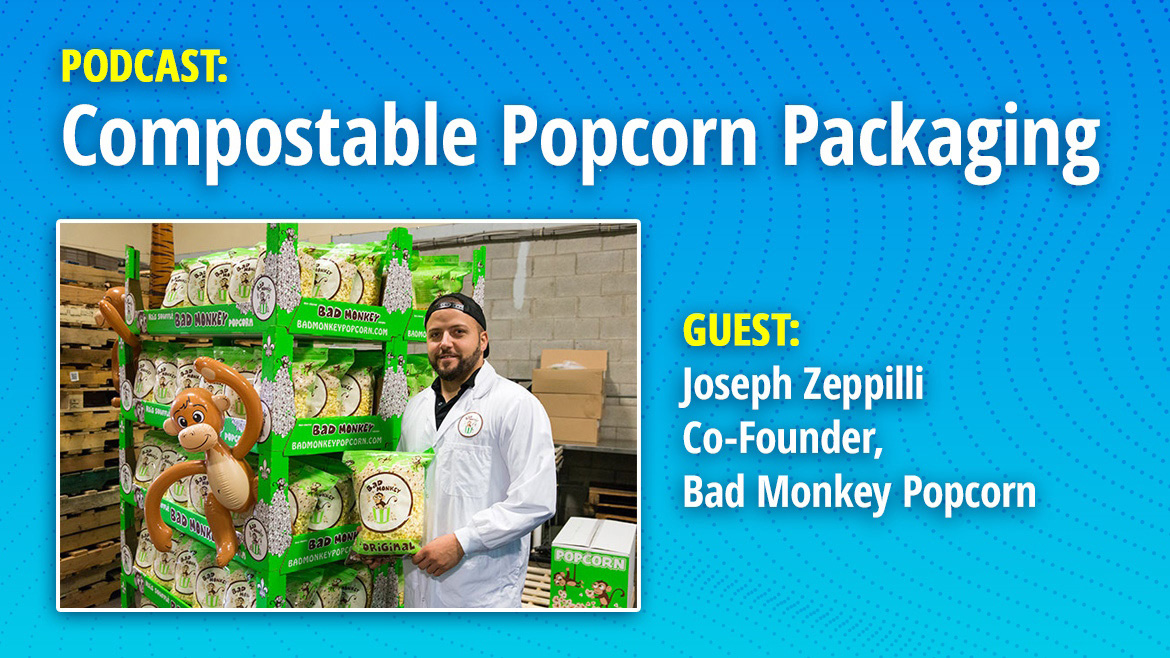Snack Packaging
Sustainable Snack Packaging Makes Huge Strides
Recycled materials, reusable packaging, compostable packaging and even used cooking oil are among the many paths toward more eco-friendly snack food packaging.

Image Source: GCShutter / Getty Images
The snack food packaging market is witnessing a huge surge in the adoption of sustainable packaging solutions.
As noted recently by Transparency Market Research: “Vendors in the global snack food packaging industry are developing recyclable, biodegradable, and reusable products to expand their customer base.” The consultancy further notes that vendors are adopting automated packaging machinery for the mass production of packaging solutions. This also ties into sustainability since efficient operations translate to a lower carbon footprint.
Anybody reading Packaging Strategies in recent months would have spotted the same trends via the companies we have spotlighted:
- Organic snack food company Once Upon a Farm has nearly doubled the number of outlets that sell its nutritious baby food and snacks for children. Looking ahead to satisfy future demand, the company recently installed automated SOMIC Packaging 424 W3 wraparound case packing systems at two of its co-packing providers’ facilities in Milwaukee and Orange County, Calif.
- KYSU — whose products range from freeze-dried fruits and snacks to chocolates and organic ingredients — has unveiled innovative packaging made entirely from recycled materials across all its products. This airtight, recyclable, and reusable paper packaging distinguishes KYSU as one of the only companies to package its entire range of over 80 different products in such environmentally friendly containers.
- Joseph Zeppilli, Co-Founder of Bad Monkey Popcorn, recently told Packaging Strategies about the company’s journey toward creating viable compostable packaging for one of the world’s most popular snack foods.
- Last but not least: Having written about Braskem on a regular basis back when I covered the petrochemical sector, I really enjoyed this opportunity to write about Braskem’s contribution to sustainable snack food packaging. What does used cooking oil (UCO) have to do with sustainable packaging for snack foods? Read the story below to find out.
Better yet, read all four stories below to learn how all of the companies cited above are charting their own unique paths to sustainable snack food packaging.
Once Upon a Farm Sees Growth with SOMIC's 424 W3 Wraparound Case Packing System

Once Upon a Farm’s current goal is to pack up to 1.2 million products weekly on both of its SOMIC case packing systems. Courtesy of SOMIC Packaging
Organic snack food company Once Upon a Farm has come a long way in a short time to establish its brand and prosper. In just nine years, the privately owned California company has achieved one ambitious milestone after another and is preparing for its next phase of success.
Since 2018, Once Upon a Farm has nearly doubled the number of outlets that sell its nutritious baby food and snacks for children. In 2020, revenues reached $20 million. Looking ahead to satisfy future demand, the company last February installed automated SOMIC Packaging 424 W3 wraparound case packing systems at two of its co-packing providers’ facilities in Milwaukee and Orange County, Calif.
KYSU Launches New Packaging Made from Recycled Materials

A vibrant display of KYSU’s range of products, all packaged in airtight, recyclable, and reusable paper cans made from 100% recycled materials. Courtesy of KYSU
Taking a significant leap towards sustainability, KYSU has unveiled innovative packaging made entirely from recycled materials across all its products. This airtight, recyclable, and reusable paper packaging distinguishes KYSU as one of the only companies to package its entire range of over 80 different products in such environmentally friendly containers. By offering consumers the option to reuse the packaging, the company addresses the urgent issue of plastic pollution in the United States while providing convenient storage solutions.
At the heart of KYSU lies a deep passion for food that delights the palate and nourishes the planet. Every product — from freeze-dried fruits and snacks to chocolates and organic ingredients — is meticulously vetted, tasted, and tested. This care for quality translates to care for the environment.
“At KYSU, we believe that sustainability is not just a buzzword but a responsibility,” said Kyrill Leutsch, CEO of KYSU. “We recognized a glaring inconsistency in the organic food industry — products marketed as earth-friendly often come packaged in materials that harm the environment. This contradiction compelled us to take decisive action. By extending our commitment to sustainable packaging across our entire product line, we aim to provide an eco-friendly alternative that empowers consumers to actively participate in reducing plastic waste.”
PODCAST | Compostable Popcorn Packaging

Product photo courtesy of Bad Monkey Popcorn
Packaging Strategies Multimedia Specialist Brett Parker sat down with Joseph Zeppilli, Co-Founder of Bad Monkey Popcorn, to discuss the company's move toward compostable packaging.
Bad Monkey Popcorn is a snack company known for award-winning innovation in the realm of sustainable packaging. They're noted for their "Heat 'N Eat" Packaging, which is the world's first heatable bag of pre-popped popcorn. They continue to innovate on the packaging front by making bags from wood fiber that are 100% compostable.
Braskem America Unveils Sustainable Solution for Restaurant, Snack Food Industries
Courtesy of Braskem
Braskem, the largest polyolefins producer in the Americas, in September announced the launch of its innovative bio-circular polypropylene (PP), which it sells under the brand name WENEW.
WENEW is a groundbreaking advancement in sustainability for the restaurant and snack food industries. Derived from used cooking oil (UCO), this certified bio-circular ISCC Plus mass-balanced product represents a significant step toward a more sustainable economy, helping to displace fossil fuels.
Looking for a reprint of this article?
From high-res PDFs to custom plaques, order your copy today!








